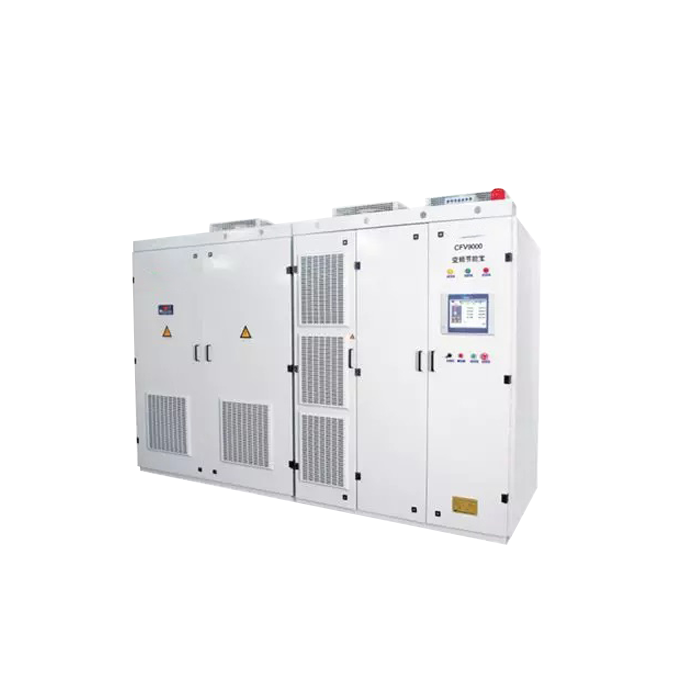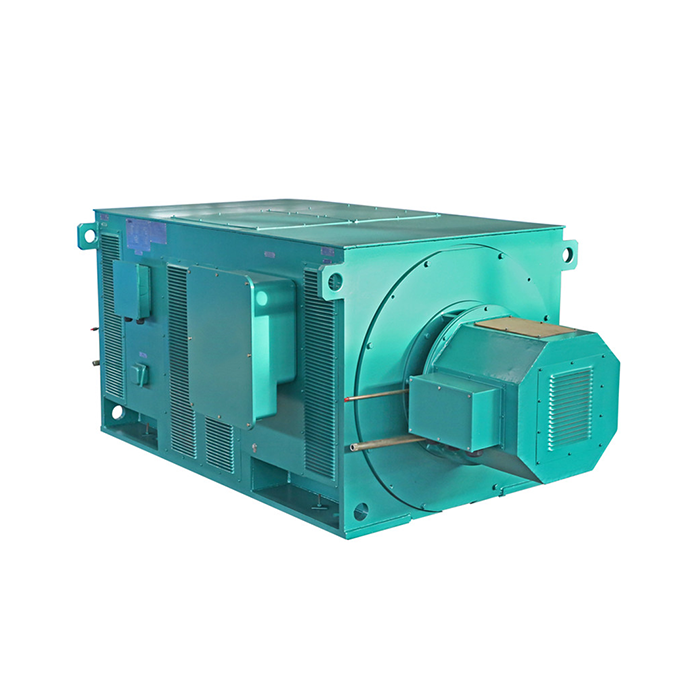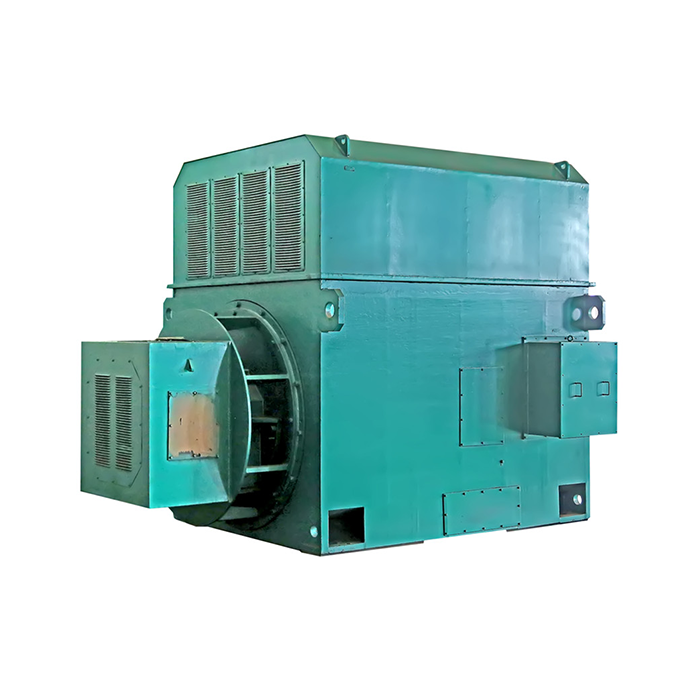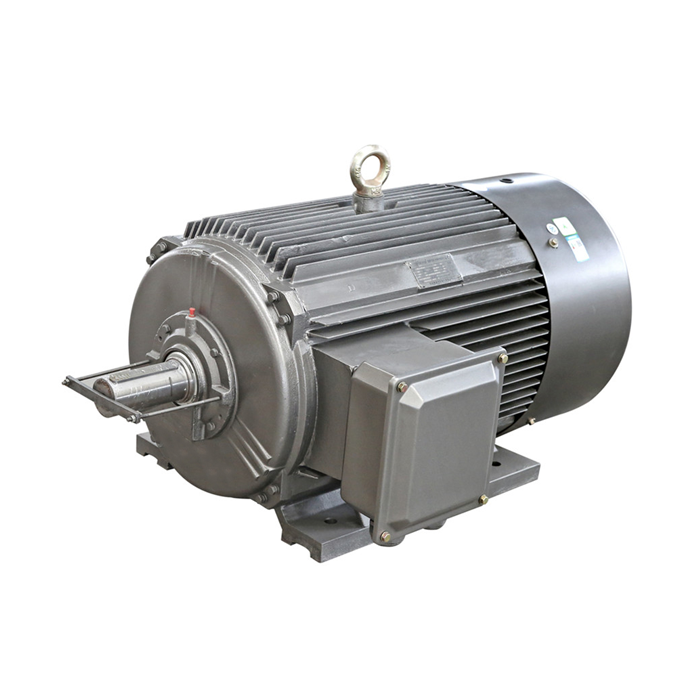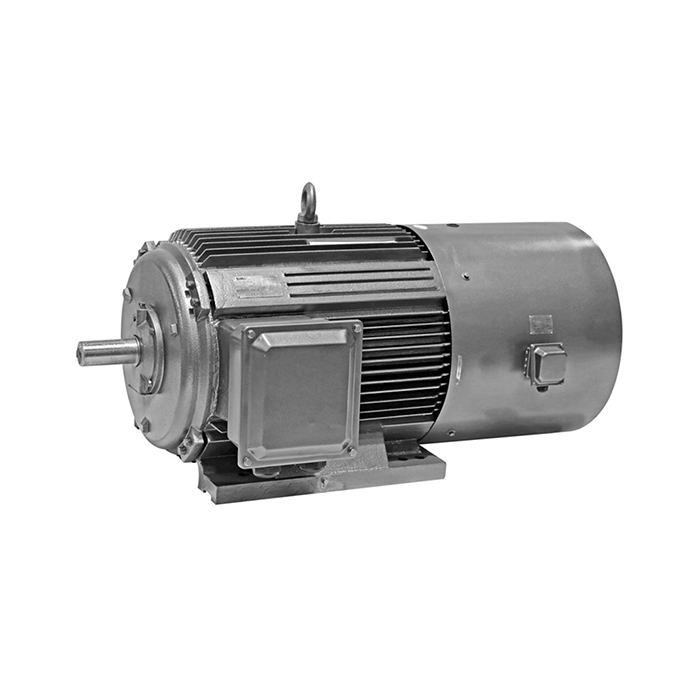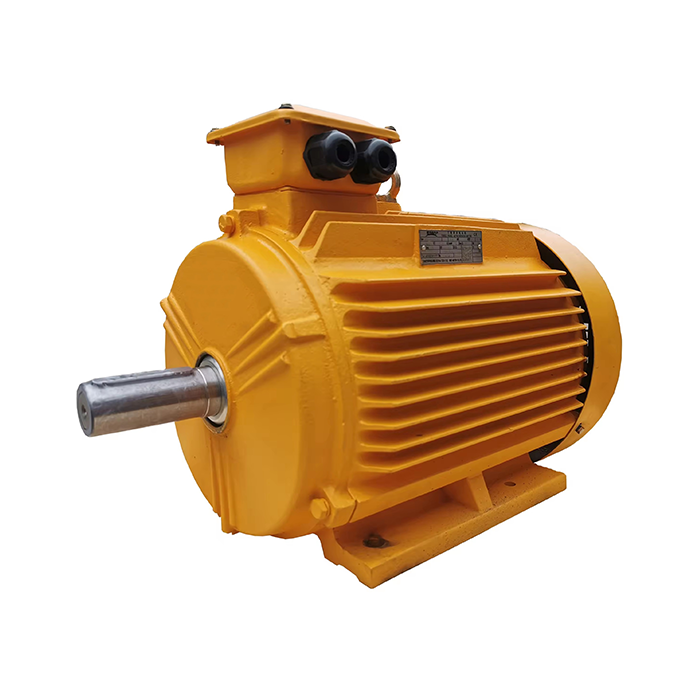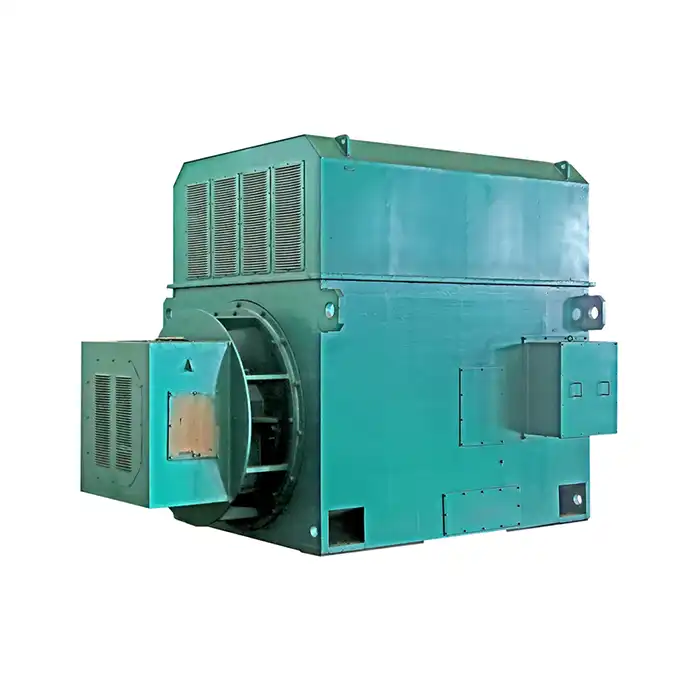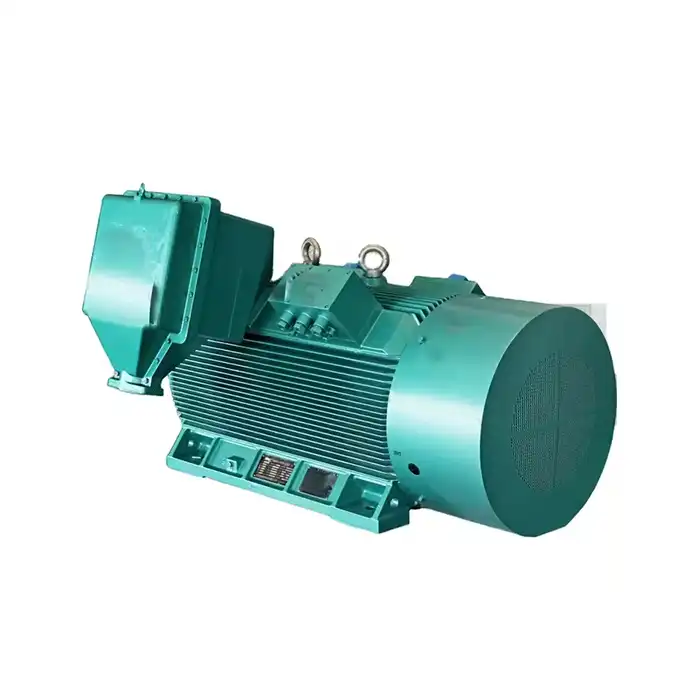Why does my Exd motor hum?
If you've noticed a persistent humming sound coming from your Exd motor, you're not alone. This common issue can be caused by various factors, ranging from minor concerns to more serious problems. In this comprehensive guide, we'll explore the reasons behind motor humming, how to diagnose the issue, and when it's time to call in the professionals.
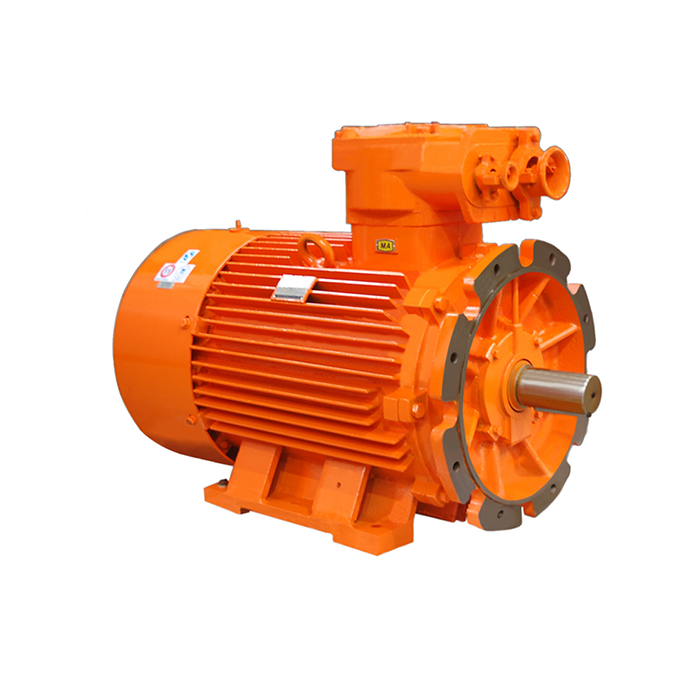
Series:YBK3
Voltage range:380V,660V,415V,380/660V,660/1140V
Power range:0.75-315 kW
Application:used in underground mining working surfaces in coal mines where there is a risk of methane mixture and coal dust explosion.
Advantage: high efficiency, large torque, strong overload capacity, low noise, small vibration, easy installation and maintenance.
Others: SKF, NSK, FAG bearings can be replaced according to customer requirements.
Explosion-proof mark: Ex d I Mb.
Common Causes of Exd Motor Humming
Understanding the root cause of your Exd motor's humming is crucial for proper maintenance and operation. Let's examine some of the most frequent reasons for this phenomenon:
Loose Components or Mountings
One of the primary causes of motor humming is loose components or mountings. When parts of the motor are not securely fastened, they can vibrate and produce a humming noise. This issue is often easy to fix but should be addressed promptly to prevent further damage.
Electrical Issues
Electrical problems can manifest as a humming sound in your Exd motor. These issues may include:
- Voltage imbalance
- Faulty wiring
- Problems with the motor windings
Electrical issues require careful diagnosis and should be handled by qualified professionals to ensure safety and proper resolution.
Bearing Wear and Tear
As bearings age and wear down, they can produce a humming or buzzing sound. This is often due to inadequate lubrication or misalignment. Regular maintenance and timely replacement of bearings can help prevent this issue.
Magnetic Noise
Sometimes, the humming sound is a result of the motor's normal operation. Magnetic noise occurs due to the interaction between the motor's stator and rotor. While this type of humming is generally harmless, excessive noise may indicate other underlying issues.
Diagnosing Exd Motor Noise: A Step-by-Step Guide
When you're faced with a humming Exd motor, following a systematic approach can help you identify the source of the problem. Here's a step-by-step guide to diagnosing motor noise:
Visual Inspection
Begin with a thorough visual inspection of your Exd motor. Look for:
- Loose bolts or mountings
- Signs of wear on visible components
- Any obvious damage or misalignment
This initial check can often reveal simple issues that are easy to address.
Listen Carefully
Pay close attention to the nature of the humming sound. Different types of noises can indicate various problems:
- A low, constant hum might suggest electrical issues
- A higher-pitched whine could indicate bearing problems
- An intermittent hum might point to loose components
Check for Vibrations
Excessive vibration often accompanies humming sounds. Use your hand (cautiously and only on stationary parts) to feel for unusual vibrations in different areas of the motor. This can help locate the source of the problem.
Measure Electrical Parameters
If you have the necessary equipment and expertise, measure the motor's electrical parameters, including:
- Voltage
- Current draw
- Resistance of windings
Abnormalities in these measurements can indicate electrical issues causing the humming.
Inspect the Bearings
If possible, check the condition of the motor's bearings. Signs of bearing issues include:
- Excessive heat
- Unusual noise when manually rotating the shaft
- Visible wear or damage
Monitor Temperature
An overheating motor can produce a humming sound. Use a thermal camera or temperature probe to check for hot spots or overall elevated temperatures.
When to Seek Professional Help for Motor Humming
While some motor humming issues can be resolved through basic troubleshooting, there are situations where professional assistance is necessary. Here's when you should consider calling in an expert:
Persistent or Worsening Noise
If the humming noise persists despite your best efforts or seems to be getting worse over time, it's time to consult a professional. Ignoring the problem could lead to more severe damage and costly repairs down the line.
Electrical Issues
When dealing with electrical components of an Exd motor, safety should be your top priority. If you suspect any electrical problems, it's crucial to have a qualified technician inspect and repair the motor.
Complex Mechanical Problems
Some mechanical issues, such as bearing replacement or rotor balancing, require specialized tools and expertise. These tasks are best left to professionals to ensure proper repair and optimal motor performance.
Lack of Proper Tools or Expertise
If you don't have the necessary tools or feel uncomfortable performing any diagnostic or repair tasks, it's always better to seek professional help. This ensures the safety of both you and the equipment.
Warranty Considerations
If your Exd motor is still under warranty, attempting to repair it yourself might void the warranty. In such cases, contacting the manufacturer or an authorized service center is the best course of action.
Conclusion
A humming Exd motor can be a cause for concern, but with proper diagnosis and timely action, many issues can be resolved efficiently. By understanding the common causes of motor humming and following a systematic approach to troubleshooting, you can maintain your equipment's performance and longevity. Remember, when in doubt, it's always wise to consult with professionals who have the expertise to handle complex motor issues safely and effectively.
FAQ
1. Can a humming Exd motor be dangerous?
While some level of humming is normal, excessive or unusual noise can indicate underlying issues that may lead to motor failure or pose safety risks if left unaddressed.
2. How often should I inspect my Exd motor for humming?
Regular inspections, ideally as part of a preventive maintenance schedule, can help catch potential issues early. Monthly visual and auditory checks are recommended.
3. Can changes in temperature affect my Exd motor's noise level?
Yes, temperature fluctuations can impact motor performance and noise levels. Extreme temperatures may cause expansion or contraction of components, potentially leading to increased humming.
Choose XCMOTOR for Reliable Exd Motors
We at XCMOTOR know how crucial it is for your business to have efficient and dependable Exd motors. Superior motors and service are our main priorities, and our team of specialists is committed to meeting those needs. Experienced in the field for many years, we provide:
- Rigorous quality control measures
- Customized solutions to meet your specific needs
- Comprehensive after-sales support
- Competitive pricing without compromising on quality
Make sure that motor problems don't interrupt your activities. If you're looking for a trustworthy exd motor factory that can provide you with high-performance, dependable motors, go no further than XCMOTOR. Contact us today at xcmotors@163.com to discuss your motor requirements and find the perfect solution for your application.
References
1. Johnson, R. (2022). Understanding Exd Motor Noise: Causes and Solutions. Industrial Engineering Quarterly, 45(2), 78-92.
2. Smith, A. & Brown, T. (2021). Troubleshooting Guide for Explosion-Proof Motors. Electrical Systems Journal, 33(4), 112-125.
3. Lee, S. et al. (2023). Vibration Analysis Techniques for Exd Motor Diagnostics. Journal of Mechanical Engineering, 56(1), 45-59.
4. Wilson, M. (2020). Electrical Issues in Hazardous Area Motors: A Comprehensive Review. Power Electronics Magazine, 28(3), 67-80.
5. Garcia, P. & Martinez, L. (2022). Preventive Maintenance Strategies for Exd Motors in Industrial Applications. Maintenance Technology Review, 39(2), 102-115.
6. Thompson, K. (2021). The Impact of Environmental Factors on Exd Motor Performance. Environmental Engineering Science, 50(4), 201-214.



